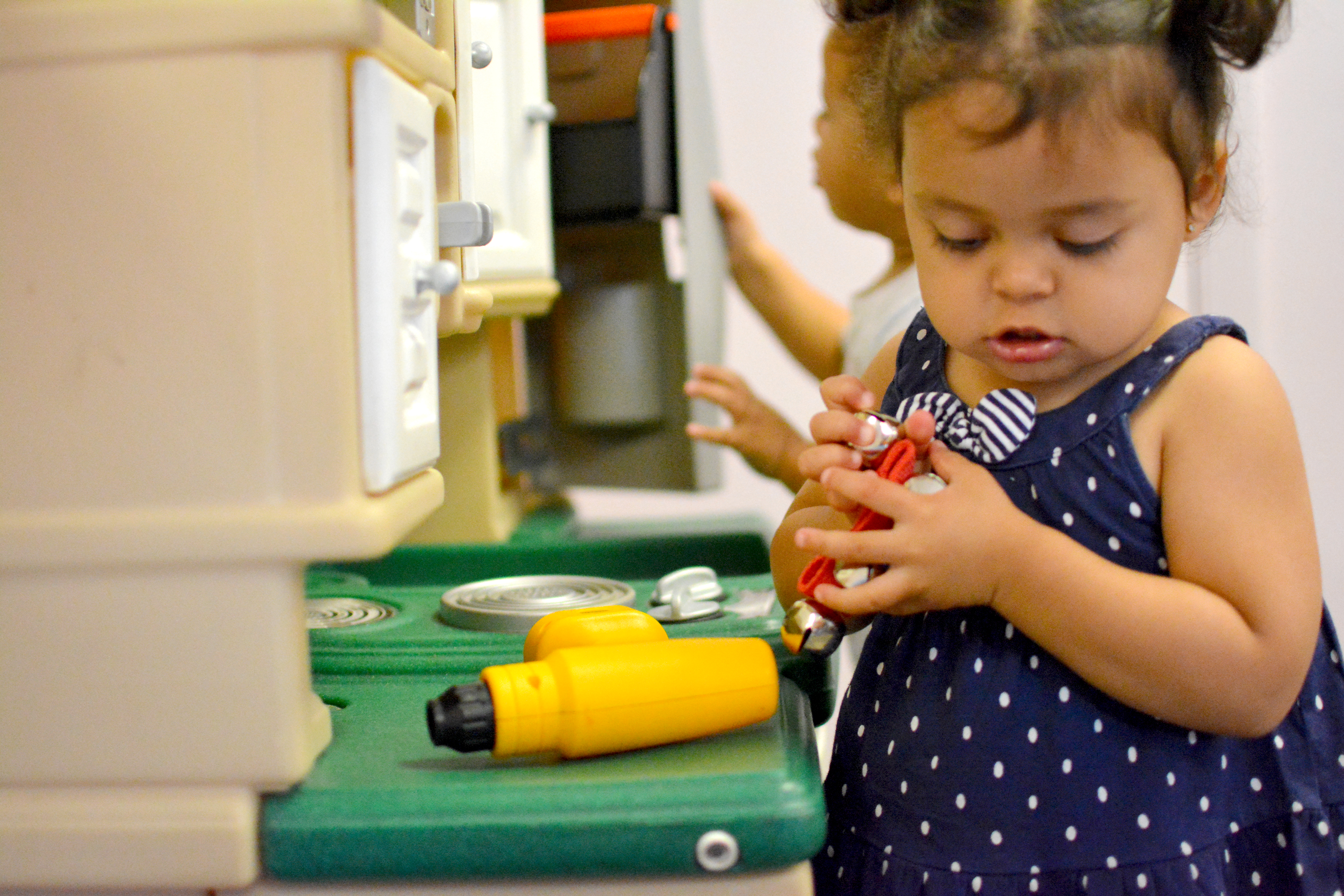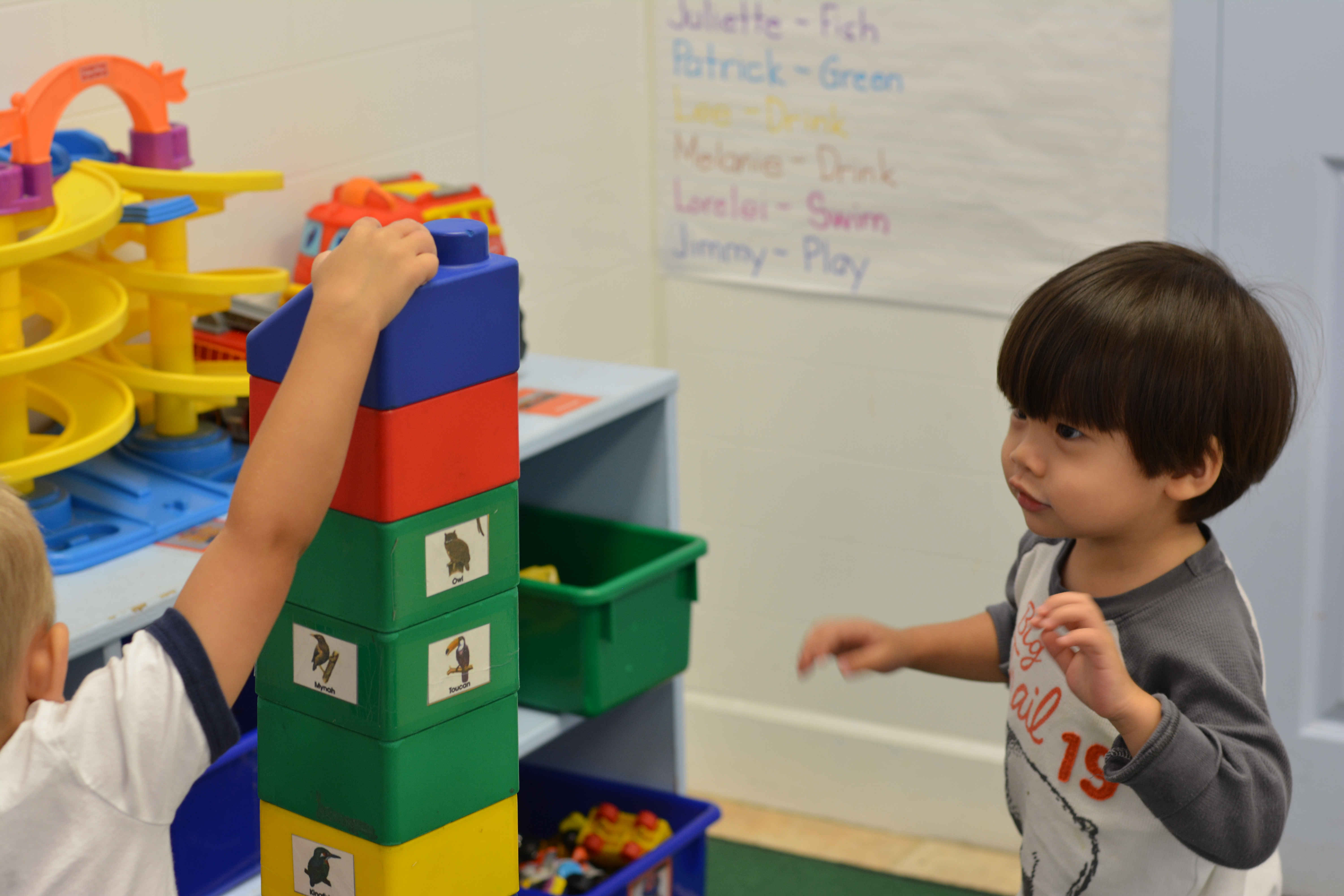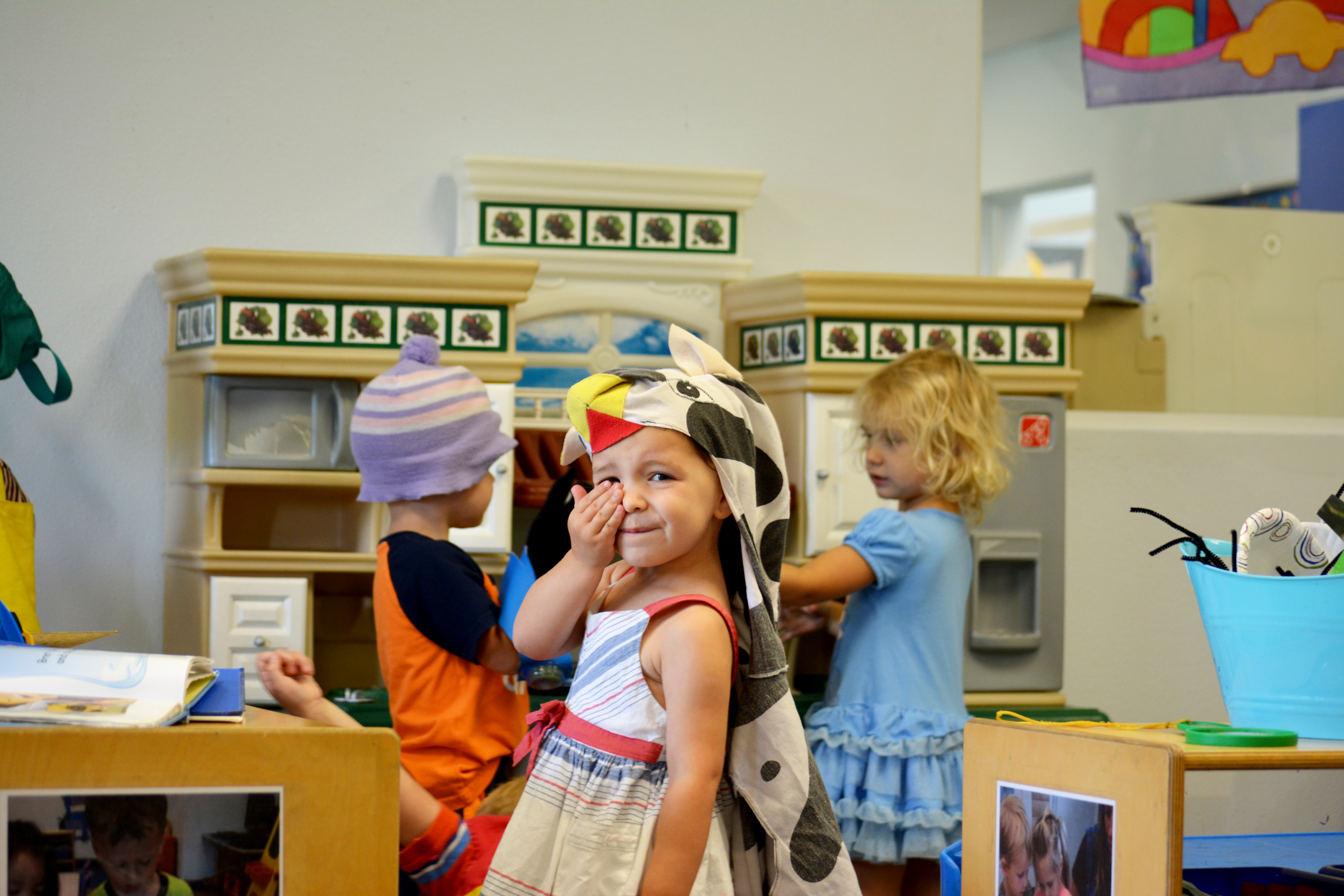Every person, whether they had a stick a truck or a doll, has played pretend. Play-acting is a crucial stage of human development, from infants learning to suck by mimicking a parent’s mouth to a preschooler’s first ideas of friendship as they play with puppets, Pretend Play happens all of the time.
According to Dr. Sara Smilansky, a former professor at Tel Aviv University who worked with Jean Piaget, There are 3 Kinds of Pretend Play that your child will enjoy as they grow up that you can capitalize on to nurture their development:
1. Exploratory Play
Quick Facts:
- Begins around 18 months
- Demonstrated by exploration: playing with their bodies/clothes, pushing cars, “feeding” a parent.
How to Encourage Exploratory Play:
Show your baby/toddler how you feed a doll or bear and see if they will imitate you. If this is easy for your child, then add a few steps. Wipe the doll’s face and then give her a bath.*
2. Constructive Play

Quick Facts:
- Occurs between 2 and 3 years of age.
- Child uses/manipulates materials to create new objects and patterns.
How to Encourage Constructive Play:
Initially what the child produces may not be a true representation, but it does show the child’s attempts at working with materials to produce an effect.*
Provide your child with building materials and point out patterns in the world around them, prompting them to notice and re-create during Constructive Play time!
3. Dramatic Play

Quick Facts:
- Occurs around 3 years of age.
- Commonly referred to as Symbolic Play.
- Children intentionally imitate or recreate familiar scenarios by role playing.
How to Encourage Dramatic Play:
Provide and encourage the creative use or props. For example, a building block as a phone or a craft stick as a spoon. Play “house” with your child and cooperate as they grow in their complex understanding of assigning roles (a mom, dad, brother, sister, baby, etc.) and spending more time and thought with character development (assigning names or directing specific actions.)
Remember, play is a child’s work! So, let them work hard and have a blast while they do!
